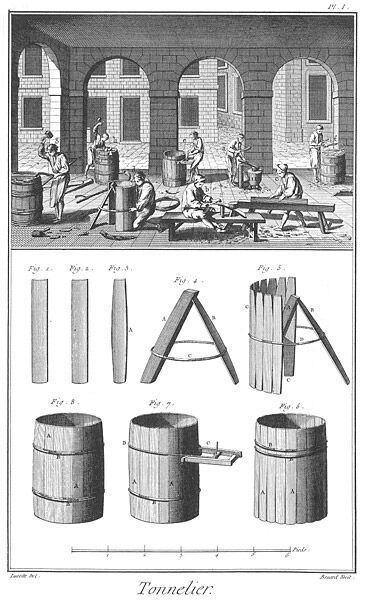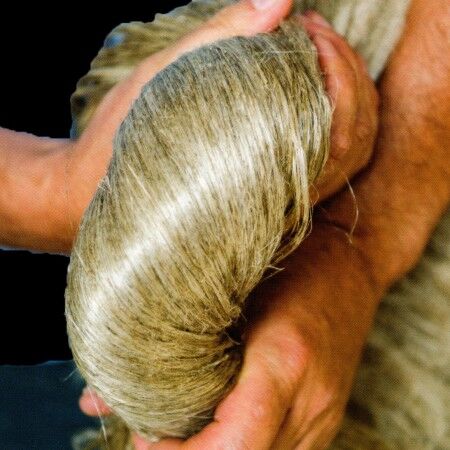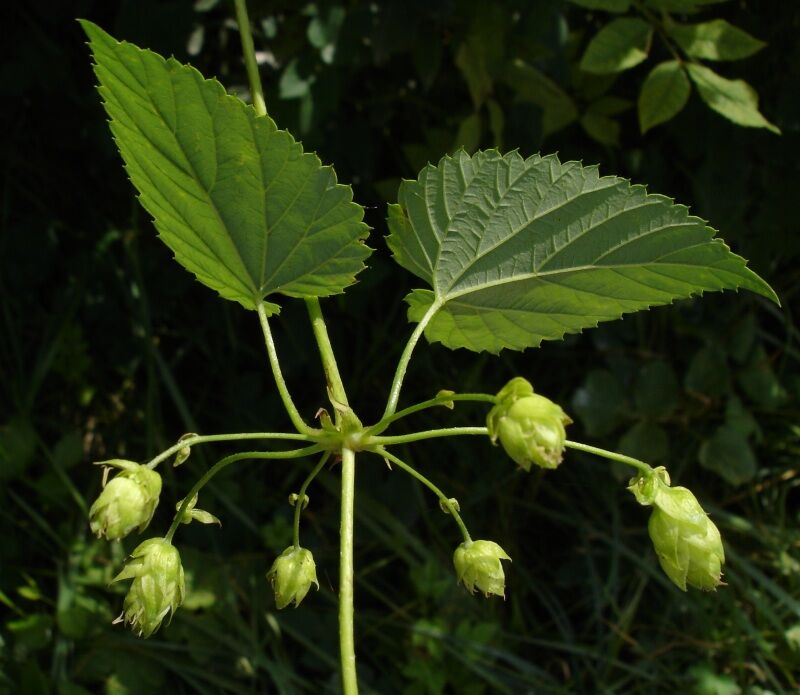In 1663, Louis XIV took control of New France. The colony had previously been governed by the companies and the economic situation was rather simple. The French mother country’s mercantilism had only managed to develop the fur trade. When he arrived in 1665, Jean Talon saw this as a problem. During his two mandates as Intendant, he tried to develop other aspects of the colony’s economy.
Jean Talon’s aim was to make the colony more independent from the mother country. In 1665, the colony had to buy all of its manufactured products from France. Talon ensured that several products were made in the colony and thereby increased its independence.

A cooperage, a workshop where barrels were made
To this end, Jean Talon encouraged people to build many workshops in the colony, including cooperages. Tanneries and shoemakers were able to make all the clothes the colonists needed and a shipyard was used to build ships. Combined with the arrival of craftspeople, these different installations meant that the colony gradually became independent.

Flax fibres, used to make rope

Hops used to make beer
When Jean Talon arrived, all the colony’s farming produce was intended for the colonists’ subsistence. The new Intendant wanted to increase this production to create surplus that could be sold outside the colony to generate profit. He encouraged the colony to plant new crops such as flax and hemp to make rope and cloth. He also made it possible to grow hops and barley that were used to make beer. The first brewery was built in the colony in 1668.
Despite the efforts of the colony’s leaders to develop New France’s economy, there were several obstacles. Some of the biggest issues were mercantilism and high costs.
The economic purpose of this system is to enrich the mother country. The Secretary of State for the Navy, Jean-Baptiste Colbert, was therefore against the economic development of New France, since the profits generated were not intended to be sent back to France. Colbert therefore limited exports to the colony since this damaged the French economy.
The difficult climate in New France caused major issues for the colony’s businesses. The colony’s ports had to be closed for six months in winter, which greatly slowed down their production. The State offered financial support to minimize the impact, but the costs incurred by this long period of inactivity were enormous.
During his two mandates, Talon managed to diversify the colony’s economy more than ever before in its short history. However, the end of his mandate and his departure in 1672 also marked the end of several projects, including the brewery in 1675.
Despite all of Talon’s efforts to diversify and expand the colony’s economy, the results were rather disappointing and the fur trade remained New France’s biggest economic sector by far.